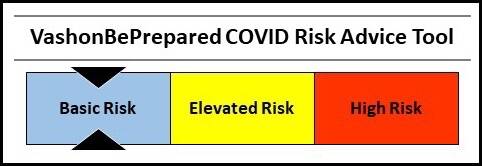Earthquake in Japan: VashonBePrepared Plans
Response and recovery operations are still underway following a magnitude 7.5 earthquake on Japan’s west coast. The tragic event reminds us that three fault zones in our own area could produce similar devastating shaking and tsunami damage to the entire island:
- The Tacoma Fault zone cuts east/west across Vashon at Point Robinson.
- The Seattle Fault zone crosses Puget Sound at the south end of Bainbridge Island.
- Although the Cascadia subduction zone is 170 miles west of Vashon, U.S. Geological Survey studies show the potential magnitude 9+ earthquake there could generate magnitude 7 shaking on Vashon.
As always after a major disaster, we have been analyzing the event in Japan to see what lessons could be applied here on Vashon. Next week in The Beachcomber, we will recommend household earthquake preparedness tips.
Even before this event in Japan, we had started planning an Emergency Operations Center earthquake exercise for mid-2024.
Vashon’s Respiratory Virus Season: Not Too Bad So Far
We asked our experts at the Vashon Medical Reserve Corps (MRC) to size up the respiratory virus season as Vashon enters the new year. One thing is clear in speaking with them: Vashon has been holding up pretty well despite ongoing concerns about influenza (flu) and RSV, along with the arrival of yet another new COVID variant. Read on for helpful tips on preventing the seasonal infections.
The New Dominant COVID Variant: JN.1
The new JN.1 variant is currently the dominant form of COVID worldwide. That has caused a lot of media attention because some new variants have triggered major spikes in COVID rates along with rising hospitalizations and even deaths.
Anecdotally, many Vashonites seem to know one or more people who have contracted COVID recently, possibly driven by the arrival of winter and indoor holiday gatherings. However, we have several things working for us.
More than 90% of Vashon’s 65-and-older population has been vaccinated with the latest COVID vaccines. “That’s a remarkable community effort and what we’ve come to expect from Vashon, everyone pulling together,” said Medical Reserve Corps (MRC) co-coordinator Dr. Jim Bristow.
JN.1 descends from Omicron.
“That helps because the current vaccines are tuned to relatively recent Omicron-type COVID variants and thus effective at preventing serious disease,” said Dr. Bristow. “That’s an important reason we have had no recent COVID-related hospitalizations from Vashon even though hospitalizations have been rising across our region.”
In addition, a large percentage of the Vashon population has built up protection from COVID because they have been infected before, and they have had multiple vaccinations.
“It’s important to understand that protections add up,” according to Dr. Bristow. “You significantly reduce your COVID risk if you combine vaccinations, acquired natural immunity, and other measures we have [repeatedly recommended], such as masking, running an air purifier, and avoiding infected people.”
State of Play: Flu and RSV
Dr. Bristow also reports that flu and RSV visits to King County emergency rooms have been rising but so far remain well below last year’s peak levels. “Generally, we believe it’s a nice way to bring in 2024 by remembering how awful things were the last several years, and how much better things are now. The risks are lower but not zero, and it’s great that the people of Vashon are doing what they always do by working together to blunt potential bad news.”
Common-Sense Respiratory Virus Safety Measures
Fortunately, the basic common-sense steps we learned to take at the height of the COVID pandemic also work well during the current respiratory virus season to help prevent spread of RSV and flu.
- Get vaccinated. There are updated vaccines for COVID, flu, and RSV. Getting vaccinated is one of the most effective things you can do to keep yourself from getting really sick from these viruses.
- Wearing a mask significantly reduces the chances of getting COVID, flu, or RSV.
- If you are at higher risk, avoid indoor crowds. Infected people exhale infected air and that could infect you. The more people who are present, the higher the risk that someone has COVID, flu, or RSV and could pass it on to you.
- If you decide to host an indoor event, improve the air quality by running air purifiers and/or opening nearby windows.
- Be extra vigilant if you are susceptible because your immune system is weakened or you have other risk factors.
- Avoid exposure to people who are sick. If you have symptoms, don’t expose others. Stay home until your fever is gone and you are feeling substantially better.
- Test for COVID with a home test when cold symptoms appear, and again 48 hours later. If you test positive, isolate for at least five days and until you test negative. If you test positive and are at higher risk, talk to your healthcare provider or pharmacist about taking Paxlovid. The medication is most effective in the days immediately following infection.


